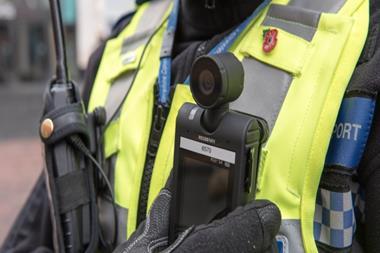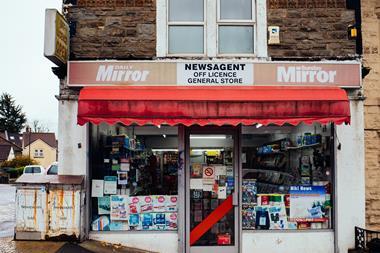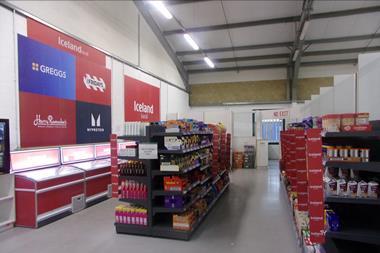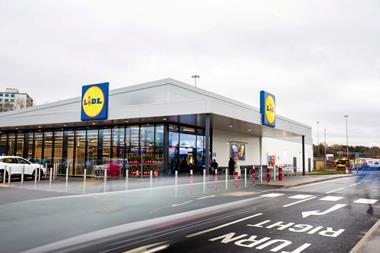The shake up to licensing is becoming a joke says Elaine Watson
To say that the government’s new licensing legislation has not been handled well to date is an understatement, says Association of Convenience Stores public affairs and communications manager James Lowman. “Less than three weeks away from the start date for applications, which is February 7, the government had not even confirmed the fees. As for the application forms, don’t get me started.”
While the political debate rages on over the wisdom of extending licensing hours to allow for round-the-clock drinking, the practical issues of how the new regime will be implemented have taken up rather fewer column inches, says senior solicitor Jane Walker at legal firm Blake Lapthorn Linnell.
“The main problem from what we can gather is that all the publicity surrounding this legislation has been on pubs and clubs and 24-hour drinking. Many retailers really do not have a clue what is going on.”
As The Grocer went on press, it was understood that application forms plus detailed plans would have to be submitted to local authorities for every store, tailored to the local area by referring to the specific policy of the local authority in question and then copied to 10 different organisations ranging from the local police department to local planners. In addition, individuals would have to apply separately for a new 10-year personal licence. While the Department for Culture, Media and Sport has said ignorance is no excuse, claiming licensees had all been told changes were afoot, the fact that some local authorities have yet to publish detailed guidance on what approach they will take, and the government only published its secondary regulations relating to the Act last week, have hardly helped matters, said Walker.
“Let’s just say that legal people think the whole thing is a joke. Councils can’t even cope with entertainment licences. How on earth are they going to cope with the tide of paperwork this will bring? And because details over how the application paperwork would look have only just been published, and we are still waiting for the fees, they simply haven’t had time to prepare properly.”
The irony is, she added, that the new system is supposed to reduce, rather than increase the complexity of the enterprise.
The fact that personal and premises licences may in some cases be dealt with by different local authorities because people didn’t always live where they worked could also be an added complication because they are likely to be processed at different speeds, she claimed. “Say your personal application takes longer than the premises one to be processed. You could end up with a licensed store in November and no one licensed to operate it.” Companies that only sell a small quantity of alcohol from premises with high rateable values will certainly think twice about whether it is worth the hassle and the cost, she added. “If you are selling a few gift packs of alcohol from a few department stores, the cost of selling it will rocket from a hundred pounds or so to several thousand. Is it worth it?”
The government has been forced to confront the same question, with opposition to the new regime flooding in from all sides, from the police, the opposition benches and many people within its own ranks.
Indeed, a U-turn on the whole idea would not take many people by surprise.
Put on the spot by Jeremy Paxman during Newsnight, a cagey Tessa Jowell, secretary of state for culture, media and sport, was unable to put forward a convincing argument for the legislation, or refute former home secretary David Blunkett’s claim it would be a “leap in the dark”.
Local authorities, meanwhile, are bracing themselves for a tough few months, says a spokesman for the Local Government Association. “The major issue for us is that we want to ensure that the resources are there to ensure that the legislation can actually be implemented. I know that when we last looked at the cost of administering such a scheme, compared with the amount raised by the fees there was a £36m deficit. So that’s a bit of a worry.”
Fee Structure
>>What the new legislation may mean
The industry was awaiting to hear details of fees for the new licensing regime as The Grocer went to press. Under the new regime, pubs, clubs and off-licences will be able to apply to sell alcohol around the clock. The power to issue licences will switch from local magistrates to local authorities. According to draft legislation, fees were set to be calculated on the basis of the rateable value of the whole premises, with applications put into five different bands.
Under the initial proposed licence structure, a typical c-store with a rateable value of £4,501 to £33,000 (band B) would pay a one off-fee of £150, plus annual payments of £125 thereafter, which amounts to £400 over three years. A store with a rateable value of more than £125,000 would pay a one-off fee of £500 and an annual fee of £225.
To say that the government’s new licensing legislation has not been handled well to date is an understatement, says Association of Convenience Stores public affairs and communications manager James Lowman. “Less than three weeks away from the start date for applications, which is February 7, the government had not even confirmed the fees. As for the application forms, don’t get me started.”
While the political debate rages on over the wisdom of extending licensing hours to allow for round-the-clock drinking, the practical issues of how the new regime will be implemented have taken up rather fewer column inches, says senior solicitor Jane Walker at legal firm Blake Lapthorn Linnell.
“The main problem from what we can gather is that all the publicity surrounding this legislation has been on pubs and clubs and 24-hour drinking. Many retailers really do not have a clue what is going on.”
As The Grocer went on press, it was understood that application forms plus detailed plans would have to be submitted to local authorities for every store, tailored to the local area by referring to the specific policy of the local authority in question and then copied to 10 different organisations ranging from the local police department to local planners. In addition, individuals would have to apply separately for a new 10-year personal licence. While the Department for Culture, Media and Sport has said ignorance is no excuse, claiming licensees had all been told changes were afoot, the fact that some local authorities have yet to publish detailed guidance on what approach they will take, and the government only published its secondary regulations relating to the Act last week, have hardly helped matters, said Walker.
“Let’s just say that legal people think the whole thing is a joke. Councils can’t even cope with entertainment licences. How on earth are they going to cope with the tide of paperwork this will bring? And because details over how the application paperwork would look have only just been published, and we are still waiting for the fees, they simply haven’t had time to prepare properly.”
The irony is, she added, that the new system is supposed to reduce, rather than increase the complexity of the enterprise.
The fact that personal and premises licences may in some cases be dealt with by different local authorities because people didn’t always live where they worked could also be an added complication because they are likely to be processed at different speeds, she claimed. “Say your personal application takes longer than the premises one to be processed. You could end up with a licensed store in November and no one licensed to operate it.” Companies that only sell a small quantity of alcohol from premises with high rateable values will certainly think twice about whether it is worth the hassle and the cost, she added. “If you are selling a few gift packs of alcohol from a few department stores, the cost of selling it will rocket from a hundred pounds or so to several thousand. Is it worth it?”
The government has been forced to confront the same question, with opposition to the new regime flooding in from all sides, from the police, the opposition benches and many people within its own ranks.
Indeed, a U-turn on the whole idea would not take many people by surprise.
Put on the spot by Jeremy Paxman during Newsnight, a cagey Tessa Jowell, secretary of state for culture, media and sport, was unable to put forward a convincing argument for the legislation, or refute former home secretary David Blunkett’s claim it would be a “leap in the dark”.
Local authorities, meanwhile, are bracing themselves for a tough few months, says a spokesman for the Local Government Association. “The major issue for us is that we want to ensure that the resources are there to ensure that the legislation can actually be implemented. I know that when we last looked at the cost of administering such a scheme, compared with the amount raised by the fees there was a £36m deficit. So that’s a bit of a worry.”
Fee Structure
>>What the new legislation may mean
The industry was awaiting to hear details of fees for the new licensing regime as The Grocer went to press. Under the new regime, pubs, clubs and off-licences will be able to apply to sell alcohol around the clock. The power to issue licences will switch from local magistrates to local authorities. According to draft legislation, fees were set to be calculated on the basis of the rateable value of the whole premises, with applications put into five different bands.
Under the initial proposed licence structure, a typical c-store with a rateable value of £4,501 to £33,000 (band B) would pay a one off-fee of £150, plus annual payments of £125 thereafter, which amounts to £400 over three years. A store with a rateable value of more than £125,000 would pay a one-off fee of £500 and an annual fee of £225.


















No comments yet